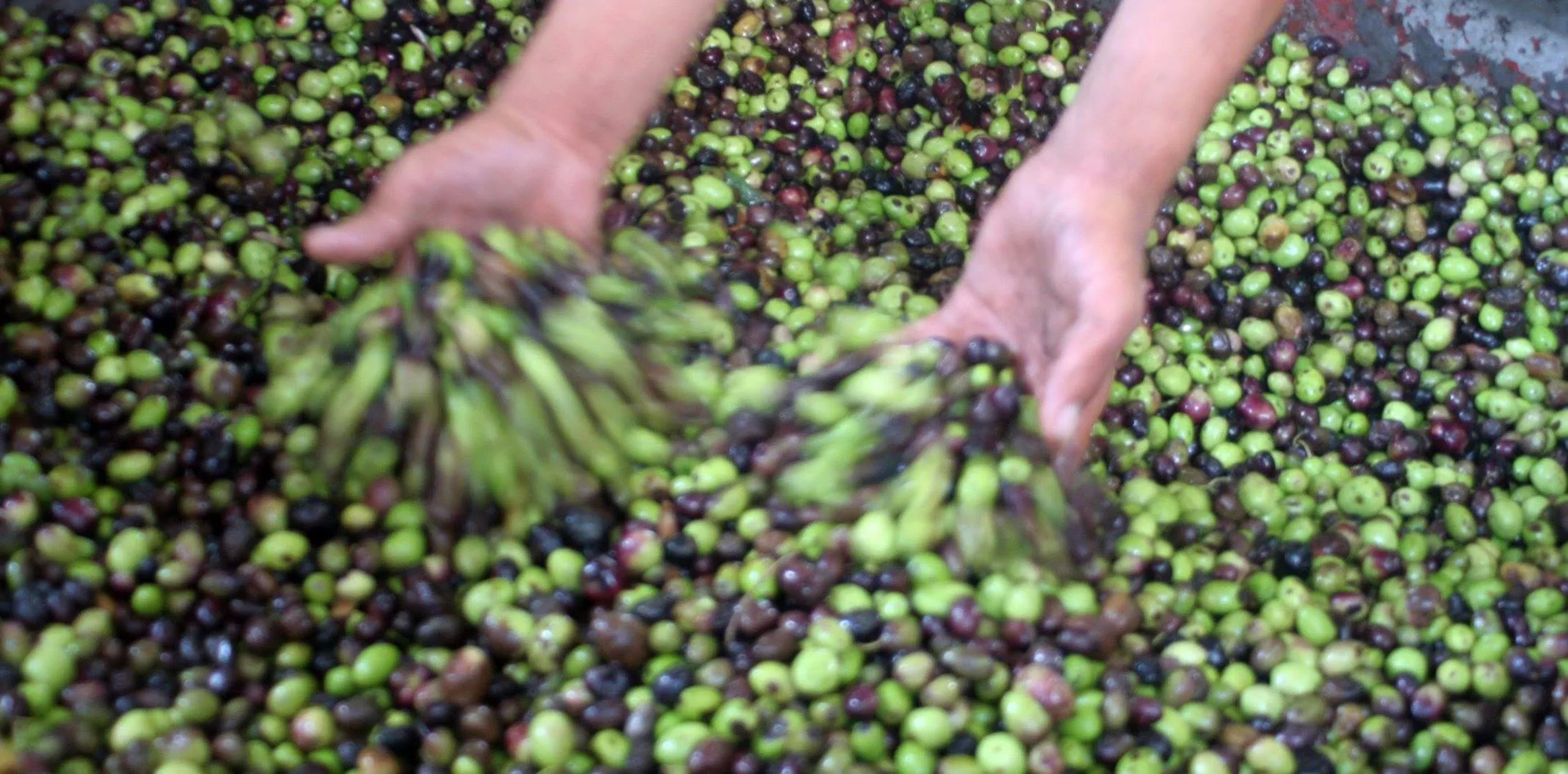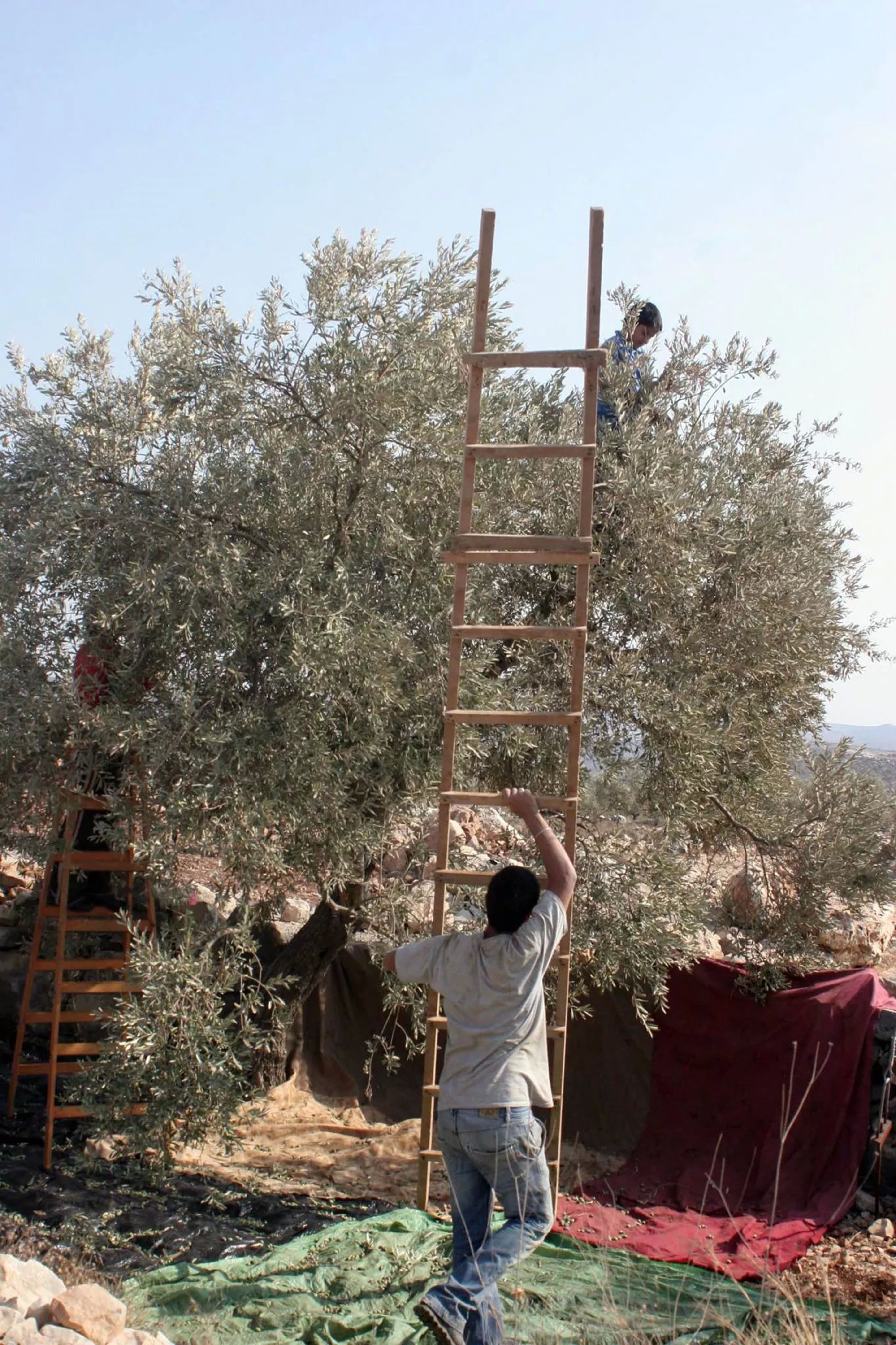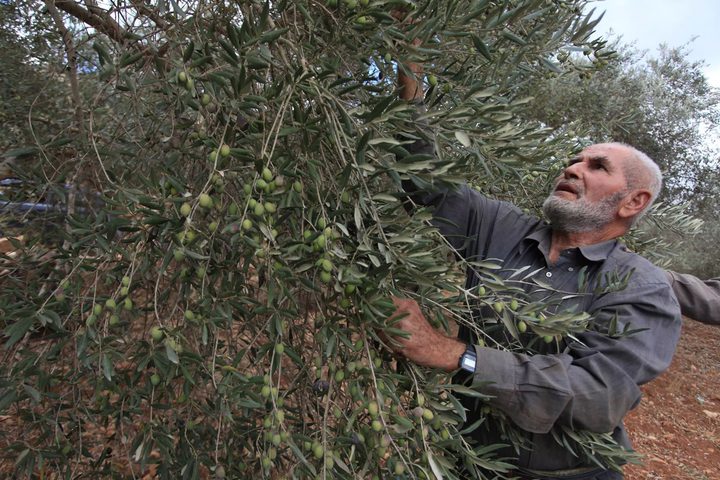During the olive harvest season, Palestine is vibrant with life and generosity, as people gather around the olive trees to begin this season of hope and agricultural effort—a season in which troubles mix with laughter and hope for goodness.
Farmers prepare to welcome the olive harvest, a time that represents more than just an agricultural season for them, but rather a part of folklore and heritage, and a manifestation of Palestinian cultural excellence.

As the season approaches, which begins in mid-October in many Palestinian areas, farmers are busy preparing mats and containers for storing the olives. A difficult task also begins for many families who own olive fields but are unable to pick them on their own. Thus, they begin their search for a "guarantor"—someone who will undertake the harvesting in exchange for a percentage of the product, up to half or sometimes two-thirds.
Some families prefer not to entrust the task of picking their olives to other people, so they hire workers for a daily wage.
Jamal Youssef, a 65-year-old farmer, began preparing the plastic mats that are placed under the olive trees during the harvest. He spoke about the difficulties posed by the lack of an abundant crop this year, saying: "This year's olives are not plentiful. I visited the fields a few days ago, and most of the trees are empty of fruit."
Jamal also complained about the low prices of oil. He usually sets aside his family's needs and sells the surplus, but he says: "Olives are a no-brainer for his worries, but we are continuing and clinging to this tree because it is blessed."
Olive harvesting operations in many agricultural towns and villages turn into a popular festival for communication between families, as an expression of social solidarity, brotherhood, and the provision of aid. The olive fields are decorated with children who go with their families and create an atmosphere of fun and joy. Some institutions and universities also organize volunteer work days to help farmers, especially those whose lands are located adjacent to Israeli settlements.
Hajja Hiyam Youssef, who produces about 700 kg of oil annually, says: "We do not have much time, as the season is upon us, and we must prepare all the supplies and equipment."
Olives Have Their Songs
Hajja Hiyam repeats songs specific to the season, such as, "Please pamper us, please pamper us... my country's olives are the most beautiful." She continues to clean the "sieve" that she uses to separate the olive fruits from the diseased or injured leaves that fall on the "mats."
She continues: "Before harvesting, we collect the weak and diseased fruits that have fallen on the ground during the past period, and we store them in containers by themselves, as they produce poor-quality oil. So, we press them alone and use them most of the time in making soap."
She adds with a sigh: "We hope to receive aid this year from relatives and institutions. In the past, our family was large, and now my children have married and are working as employees, and only the youngest remains next to me after all my daughters have married. Therefore, we resort to employing workers with us, and we pay them 100 shekels (about 26 dollars) for every day of work."
Season of Goodness
Suheir Abdel Karim, a 45-year-old woman, welcomes the olive harvest season, saying: "I love this season because it brings the family together and reminds us of the way our ancestors lived, far from the modernity that stole from us our 'guidance of mind.' Tea and food cooked over a fire in the fields carry a special taste. We also find time to talk to each other during the harvest, away from technology disturbing our lives."
During the harvest, family members exchange jokes and political and popular conversations, and most families abandon many customs, some of which relate to food. Families working in the olive fields tend to rely on light food and canned food. Women are busy picking and do not have much time and energy for cooking.
The Olive Tree in Palestine
The olive tree in Palestine carries many political and economic meanings. It expresses adherence to the land and the depth of history, belonging, and identity. Many of these trees are more than hundreds and thousands of years old, and they are constantly exposed to attempts of destruction and bulldozing by the occupation.

It is noteworthy that the Palestinians circulate many popular proverbs that demonstrate the importance of olive oil in their lives, including: "My bread and oil are the building blocks of my house," "If there was bread and oil in the house, I would stand up and sing," "Wheat and oil are the building blocks of the house," and "Drink olive oil and he jumped the wall."






